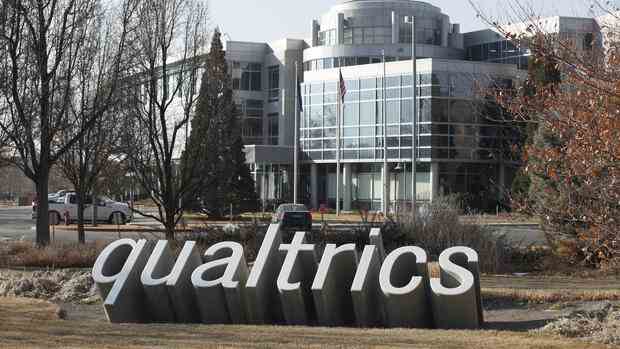The year 2023 threatens to be a lost year for investment banking. The volume of mergers and acquisitions (M&A) in Germany has slumped to its lowest level since 2016, according to the latest data from information service provider Refinitiv.
“At the beginning of the year we saw a very subdued start to M&A activities. In particular, we see huge declines in domestic M&A and inbound deals. Global economic uncertainty and reduced investor confidence are key factors in this slump,” says Christian Kammler, Managing Director of Refinitiv Germany. In so-called inbound deals, foreign buyers acquire German companies.
CEOs are shying away from transformational deals that have the potential to transform an entire industry given the uncertain outlook. Higher interest rates make it harder to get credit. Bank syndicates are currently hard to mobilize for large deals, and the conditions offered often make purchases unattractive, especially for private equity firms. After the collapse of the Silicon Valley Bank and the purchase of Credit Suisse by UBS, this bottleneck is unlikely to ease in the coming months.
In addition, many sellers of parts of a group or medium-sized companies find it difficult to adjust their price expectations downwards. They often still remember the ratings from the boom two years ago.
Should inflation fall and the central banks signal an end to interest rate hikes, financiers would be able to calculate more easily again and the markets for high-yield debt capital (leverage finance) could pick up again. This would lay the foundation for more transactions.
“A lot is building up. A lot could come at once in the second half of the year. Companies have many plans in the pipeline and private equity is pawing at the hooves,” says Heiko Mittelhamm, who heads the German M&A business at HSBC. “The period ahead could be somewhat volatile and the recent turmoil is unlikely to help increase optimism in funding markets and in boardrooms.”
Christian Schwarzmüller, co-head of BNP Paribas’ M&A business in Germany, takes a similar view. “Sellers are currently taking some time and waiting for the company figures to stabilize on the one hand and the recovery on the financing markets on the other.”
Since the beginning of the year, Refinitiv has only counted three deals with a valuation of more than a billion euros involving German companies: the sale of the SAP subsidiary Qualtrics to the private equity firm Silver Lake, the announcement by the financial investor Cinven of its Synlab laboratory chain, which was only listed on the stock exchange in 2021, at a bargain price and the takeover bid by Klöckner’s major shareholder Friedhelm Loh for the steel trader.
ESG dominates in portfolio discussions
Experts expect the market for larger transactions to return. “We continue to expect significant strategic M&A activity – not least because of the ongoing trend towards spin-offs or IPOs,” says Ralph Wollburg, co-head of global M&A business at Linklaters. The focus is partly on new trends. “The topic of ESG dominates in portfolio discussions of companies. Many companies are increasingly aligning themselves and their products with circularity and the circular economy. The goal: a resource-saving and recyclable product range,” says Constantin Gall, Managing Partner of EY’s Strategy and Transactions division.
While there is a lull in mega deals, the situation in the middle segment between 100 million and 500 million euros is currently looking somewhat better. Deals can still be financed there, sometimes with the participation of private credit funds – so-called debt funds. Although 2022 was another turbulent M&A year, you can see that companies in all important sectors are interested in transactions, says Malte Bruhns from the law firm CMS.
However, there is often a lack of impetus from financial investors, who have developed into an important group of buyers and sellers in recent years. “In the currently uncertain market environment, a number of private equity investors are reluctant to approach the broader market with an official sales process, also to avoid the risk of a failed auction.
They prefer to find out bilaterally if they are interested in selling or refinancing. Transfer to a continuation fund is currently also an alternative,” says Burc Hesse from the law firm Latham & Watkins, who specializes in advising private equity firms. Continuation funds are vehicles into which financial investors transfer companies if they cannot be sold after the originally planned holding period.
According to the consultants, not much will happen with IPOs in the second quarter either. The markets are considered to be too volatile, companies can only be listed with large price discounts, which is why issuers prefer to wait and see. A so-called exit channel is thus blocked for private equity companies and start-ups, as well as for corporations that want to list their subsidiaries on the stock exchange.
More: The less fortunate Ionos IPO and its importance for the IPO year 2023


